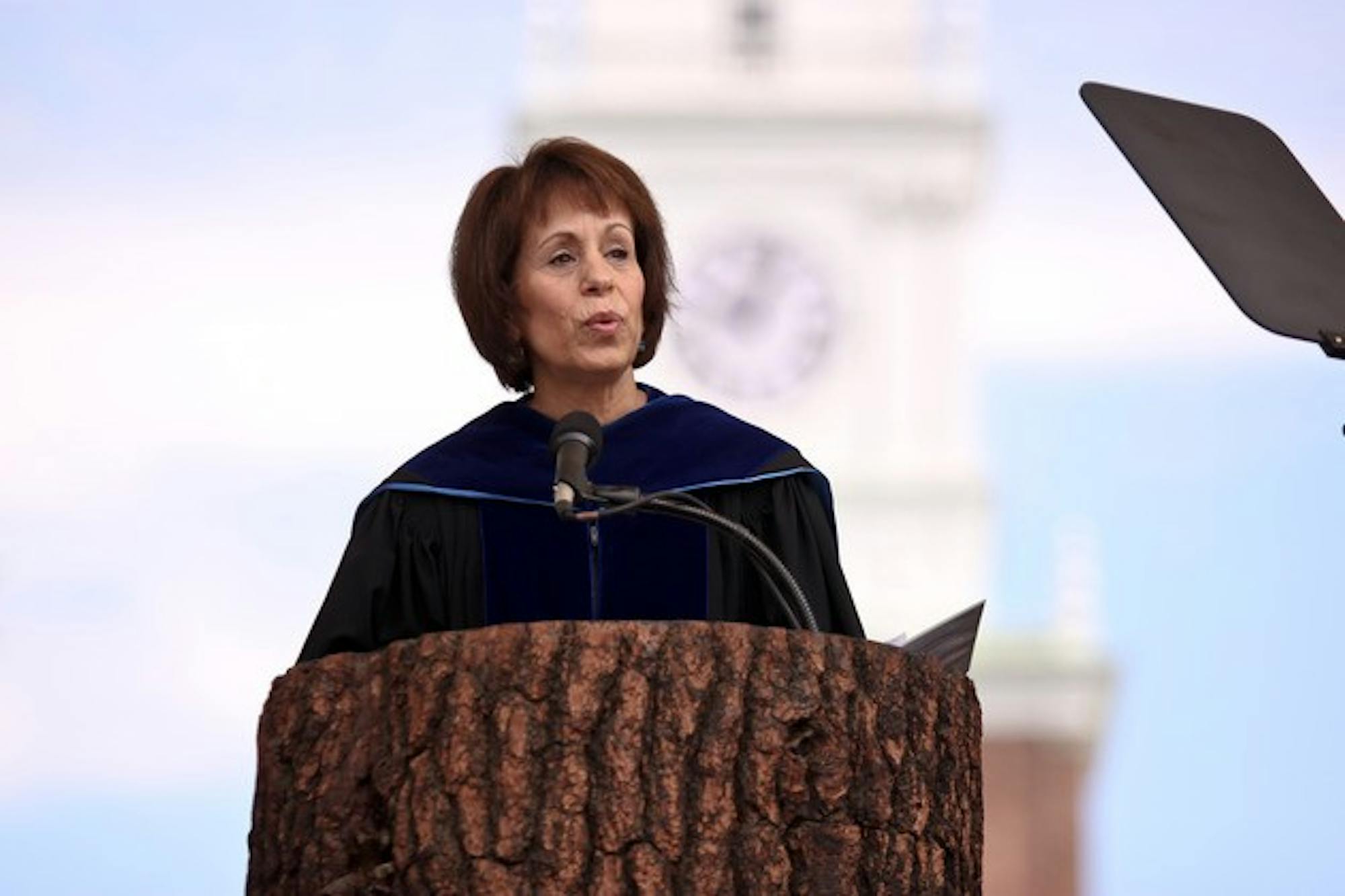As College provost since May 2010, Folt, along with former College President Jim Yong Kim, led the strategic planning process that aimed to develop broad policy goals by strengthening faculty and the academic curriculum. As president, Folt said she will continue to push the initiative forward, which includes integrating digital technology in classrooms, extending Dartmouth's public image abroad and advancing health care delivery science. The initiative is a cross-campus plan for Dartmouth's future that comprises both student and faculty input, according to Folt.
"We've created something here that has more of Dartmouth involved than ever before," Folt said. "We're talking about new learning tools and new media the faculty and administration are very eager to dive into that."
Part of the strategic planning process has focused on Dartmouth's international image, specifically in regards to study abroad programs and internships, she said. The group has looked at additional international programs, partnerships with other institutions and online communication as opportunities for Dartmouth to engage globally.
"We have so many programs overseas, but our ability to go to certain parts of the world is more than to others," Folt said. "There are a lot of faculty who are interested in increasing our international impact and programming. It's also a chance for alumni who have been out in the world to come back with ideas and help us determine a proper path."
Folt emphasized that she will focus on strengthening communication within the College.
"Interim year is about experimenting and facilitating conversation," Folt said. "We want to bring in as many people as possible and try new ways of communication. We want a transparent and open process and inclusion for the community."
In addition, recent media coverage of Dartmouth's Year of the Arts initiative and the Dickey Center for International Understanding, as well as continued work in strategic planning, will attract strong candidates for the College presidency, Folt said.
Campus life initiatives will seek to improve the educational experience by "blurring the line" between in-classroom and out-of-classroom work, Folt said.
"We're thinking about how we can expand learning opportunities and not be confined to the classroom, laboratory and thesis experience," Folt said. "We're excited by the Peak Performance initiative in athletics, and that carries a lot of potential for not just athletes, but students."
Current pressing issues that the administration will address include binge drinking, hazing and sexual assault. Folt said she will work with deans, faculty and students across campus to reduce these risks.
Professors expressed optimistic outlooks for Folt's tenure as interim president, but wondered how her new role will affect her impact at the College.
"I think she's the kind of person that's going to rise to any challenge," biology professor Roger Sloboda said.
Folt said she is "very happy" about her decision to remain only as interim president and not seek the permanent presidency.
"I feel that what I can do most effectively for the institution is to help Dartmouth move forward in strategic planning, and that will allow me to focus on activities on campus," Folt said.
Biology and Geisel School of Medicine professor Lee Witters said that Folt can choose to serve as a "caretaker" for initiatives already in progress or decide to create some of her own during her tenure.
"I think one can pick an area and not be a steward but really elevate the discussion on a particular area," Witters said.
Witters emphasized the importance of upholding Dartmouth's moral integrity, particularly in light of recent controversies regarding hazing, alcohol and sexual assault. Although the College regularly discusses these issues, there seems to be little movement in any direction, he said. Finding solutions to these problems is essential to how the institution is viewed from the outside.
"I would like to see some focus on issues that will make a huge difference for students who are here now and that emphasize the moral character of the institution," he said. "Sometimes you need a strong moral voice to say, Enough is enough.'"
Witters expressed hope that Folt will be this voice during her tenure.
Folt said that she is looking forward to the year ahead, which includes, along with the Year of the Arts initiative, the 40th anniversary of co-education at the College, 40 years of the Native American Studies program, 40 years of the Black Alumni of Dartmouth Association and 50 years since the first woman graduated from the medical school.
Staff writer Jenny Che contributed reporting to this article.




